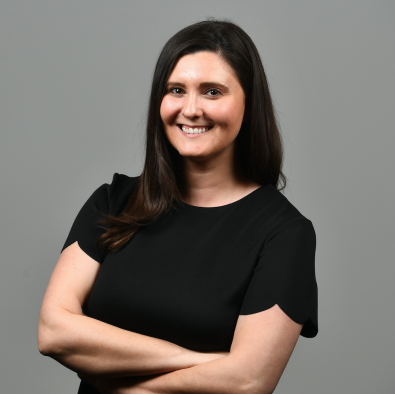
The Washington Post’s new London hub editor has told how the title is seeking to grow its subscriber base by building up a 24-hour global news operation.
The title, owned by Amazon billionaire Jeff Bezos, plans to hire 150 new staff this year, taking its newsroom to record size. As part of its expansion plans, the Post is opening breaking-news offices in both London and Seoul, South Korea.
Sara Sorcher – a former USA Today White House editor who joined the Post in 2018 to help build up its PowerPost news brand – was last month named as the group’s new London hub editor.
In an interview with Press Gazette (below), she details how the Post will work as a 24-7, global news operation. Sorcher also reveals how the title hopes to build its digital subscription business globally.
The Post says its global (non-US) subscriptions rose by 80% year-on-year in January and currently make up around 10% of its 3m or so digital subscriptions. On this growth, Sorcher says: “Our goal is to continue on that path.”
The Post’s London hub is due to be made up of two editors, four breaking news reporters, a photo editor, an audience editor and a multi-platform editor.
Q: Why did you decide to make the move to head up the Washington Post’s London bureau?
“I’m looking forward to playing in the newsroom’s global expansion and helping launch another new Post initiative.
“I joined the Post three years ago to expand and to develop strategy for PowerPost, which includes our suite of morning newsletters on Washington politics and policy. In that role, launching new products was a core part of my job. So was editing news and analysis across a wide range of beats, from US politics to cybersecurity, technology, healthcare and more.
“And at other parts of my career I’ve loved having a startup environment within well-established news organisations – whether that’s creating new newsletters or verticals or other editorial products.
“So this is a chance to dive into that as well. And I’m looking forward to combining my interests in both US and international news in this new role and to going overseas again. I’ve been in Washington for more than a decade since working as a journalist based in Israel…
“The chance to play a role in a global expansion like this, and to be thinking about these challenges of growing readers and subscribers across the world, is tremendously exciting.”
[Read more: The 100k Club: Most popular subscription news websites in the world revealed]
Q: What will be the London team’s focus? UK news? European news?

Sara Sorcher (photo credit: Katherine Frey/The Washington Post)
“Essentially we’ll be a quick response unit covering major news as it breaks during our timezone regardless of where it happens.
“And so we’ll work in coordination with foreign correspondents and regional editors. So that will include the US and include anywhere in the world.
“As part of its efforts to become a truly global newsroom, the Post is starting up these two hubs in London and Seoul to operate quickly and around the clock as news is developing 24/7.”
Q: How will the Post’s US office coordinate with London and Seoul?
“The idea is for a fast and seamless, round-the-clock operation.
“Breaking news responsibilities will be handed off every night from the Washington newsroom to Seoul and then to London and then back to Washington in their morning.
“I call it a news relay. That’s the vision for it. As part of the newsroom’s 24-hour workflow, a London editor will take a turn each day as point for those global coverage decisions, and the hub will operate seven days a week.”
Q: Will your coverage be targeted at the Post’s existing (mainly US) readership, or is it intended to grow a new audience in Europe?
“It’s both. The news hubs will be focused on reporting that’s meant to be informative to a global audience.
“Ultimately our goal is that readers, regardless of where they are in the world, can rely on finding a full, timely news report at any hour from the Post.”
Q: Do you want to recreate the PowerPost “startup environment” in the new London office?
“I think it will be interesting because we will be plugging into a big and growing organisation. So we will be working with people who are around the world, but also with people who are in Washington from this hub.
“So I think there will certainly be things that we are experimenting with as we launch and get running. But then we also have the advantage of being part of a very well-established news organisation that has a lot of talented journalists and existing teams that can help us succeed.”
Q: For the Post’s new London team, what would success look like at the end of 2021?
“I think there are a lot of ways to measure that. Certainly having this seamless, round-the-clock operation is a top goal. And making sure that we succeed in our mission to deliver news to a global audience.
“The international subscriber base is growing and so I think it would be safe to say that our goal is to continue on that path.”
Top photo by ERIC BARADAT/AFP via Getty Images
* This article was amended to state that the Washington Post is hiring 150 staff this year, rather than 150 journalists.
Email pged@pressgazette.co.uk to point out mistakes, provide story tips or send in a letter for publication on our "Letters Page" blog
